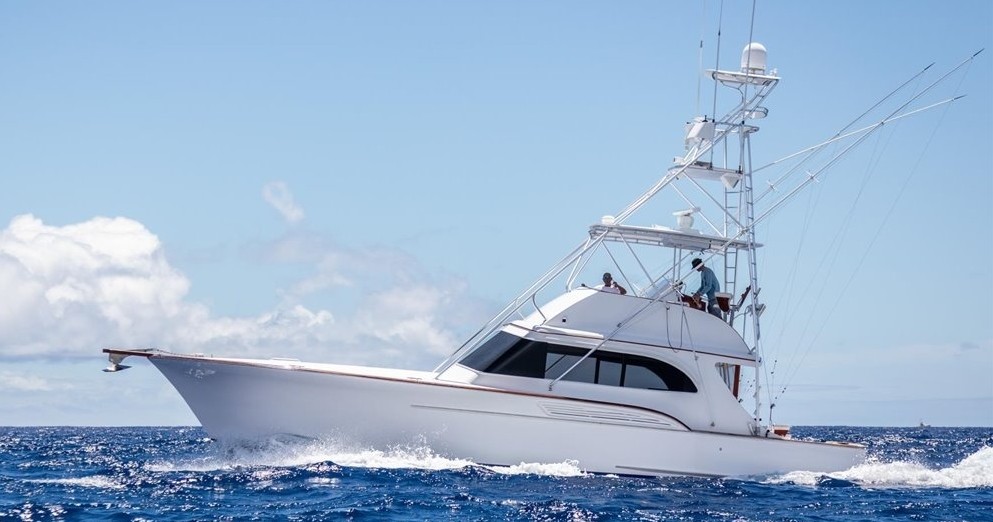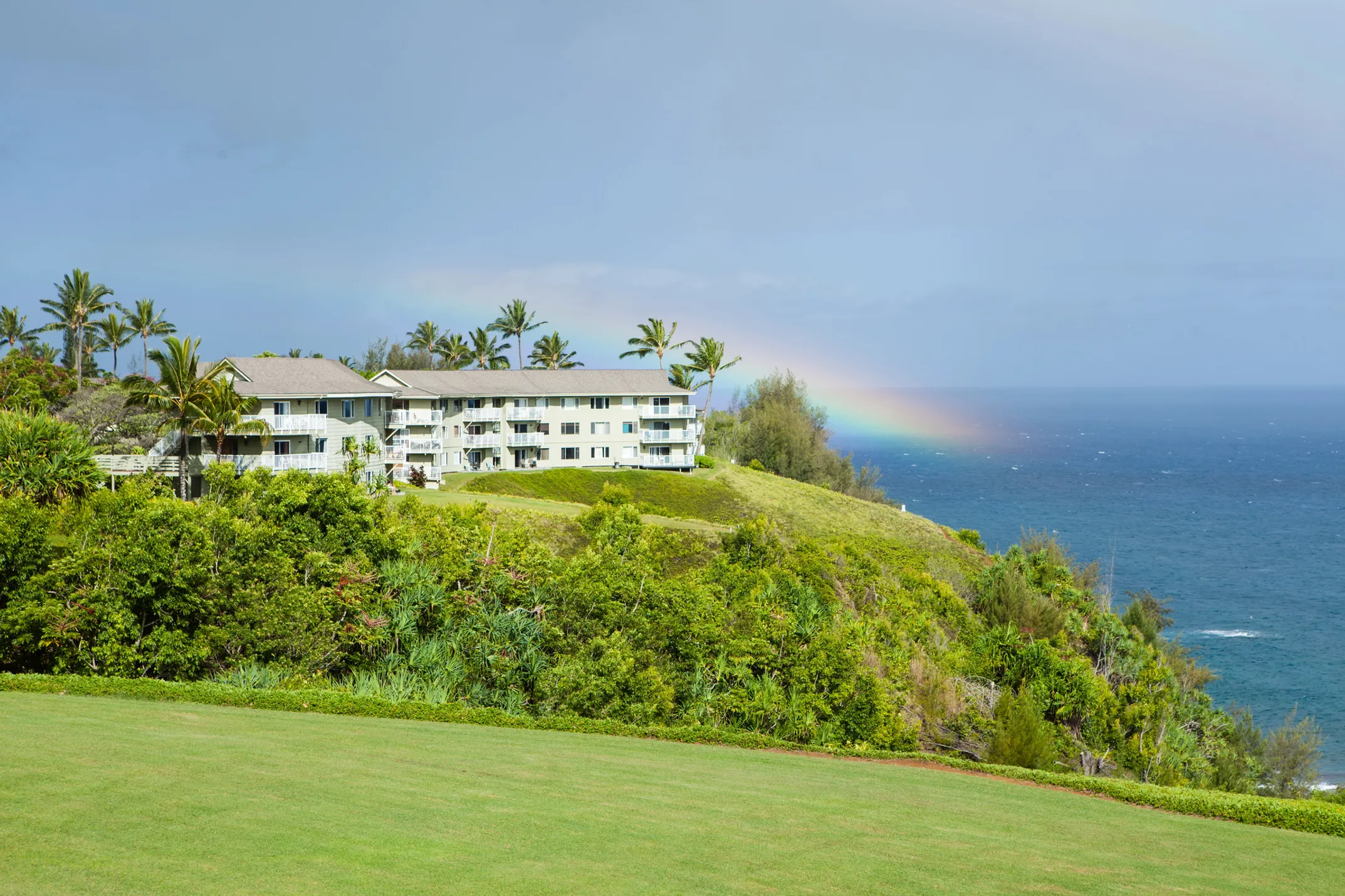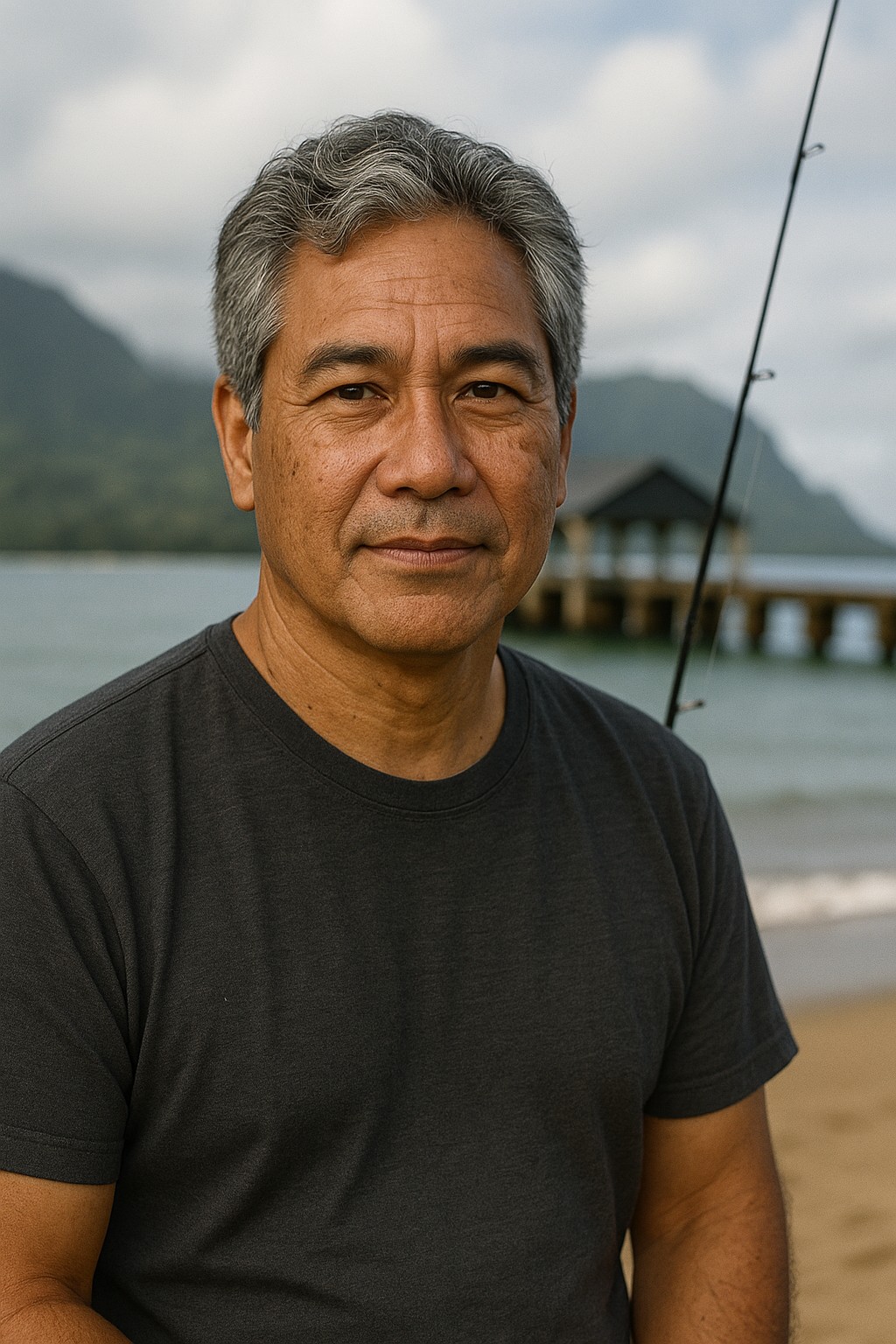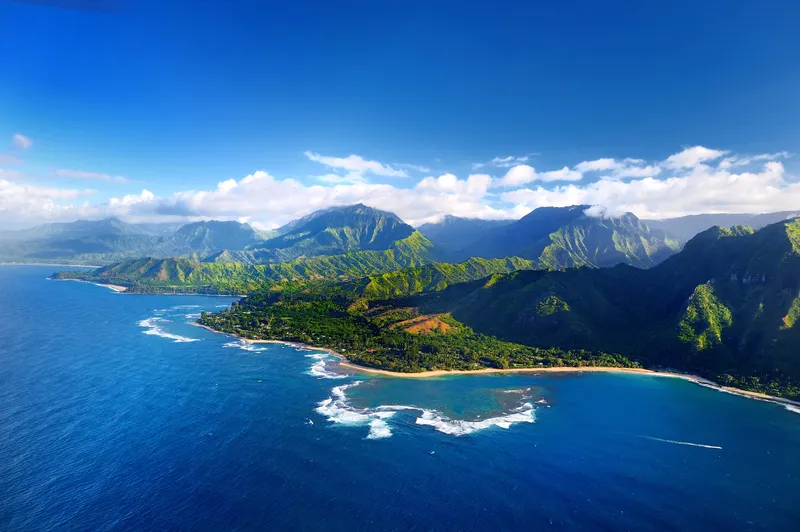
Private Luxury Fishing Charter on 47ft Vessel 'KU'ULA KAI. Bathrooms & A/C"
Apex Charters Incorporated • Boat Tour • Kauai • Kauai

Your Complete Island Adventure Guide to the Garden Isle

Written by a Local Expert
Kalani MillerAloha, and welcome to my home. My name is Kalani Miller. For as long as I can remember, the red dirt of Kauai has been under my feet. The salt spray of Hanalei Bay has been on my skin. My tūtū (grandfather) taught me how to read the waves here. He showed me how to listen to the stories the mountains tell. He taught me to respect the powerful mana, or spiritual energy, that flows through this island. He used to say that Kauai doesn't just show you its beauty. It shares its soul.
And he was right. There's a reason we call her "The Garden Isle." It's a place where centuries of growth have carved out lush rainforests. Cascading waterfalls flow everywhere. Rivers fork through the land like veins. More than 90% of this island is off limits to cars. A wild heart of dramatic cliffs and hidden valleys that truly feels timeless.
You can find plenty of lists telling you where to go. But my promise to you is different. This isn't just a list. It's an invitation. I want to share my Kauai with you—the real Kauai. I'll take you through the island the way we see it. By its shores. From the famous cliffs of the North Shore to the sun-soaked beaches of the South. The royal Coconut Coast in the East. The stunning beauty of the West Side's Waimea Canyon.
So, take a deep breath of our plumeria-scented air. Let's begin our journey.

Before you pack your bags, a little knowledge goes a long way. Making a few key decisions upfront will shape your entire huakaʻi (trip). It ensures you experience the Kauai that's perfect for you.
The first question I always get is, "Kalani, where should I stay?" The truth is, there's no single "best" place. It all depends on the kind of paradise you're dreaming of. Most importantly, the time of year you visit.
The North Shore is the Kauai you've seen in movies. A stunning scene of emerald mountains, taro fields, and amazing beaches tucked into dramatic bays. It has a quiet feel with charming towns like Hanalei. Amazing food trucks. Fewer crowds. This makes it perfect for a romantic getaway. Or for those who want to dive deep into nature. This is the gateway to the Nāpali Coast and some of the island's best hiking.
However, there's a crucial trade-off: weather. The North Shore gets much more rain. This happens especially during the winter months (roughly November to February). This rainfall creates the lush scenery. But it also brings large ocean swells. These winter swells can make famous beaches like Hanalei Bay and Tunnels Beach unsafe for swimming or snorkeling.
If your vacation is all about getting the most "fun in the sun," the South Shore is your best bet. This region is known for its steady sunny weather. More predictable, calmer ocean conditions. Especially in the winter when the north is rough. It's home to fancy resorts. Perfect beaches for families. Top-notch amenities like golf and shopping. Poipu Beach is a hub of activity. Famous for snorkeling and spotting honu (Hawaiian green sea turtles). The South Shore is more developed. It can feel more "touristy." But its ease and reliable sunshine make it perfect for families and first-time visitors.
Nicknamed the "Coconut Coast," the East Side is a practical choice. Often more budget-friendly too. Staying in a town like Kapaʻa places you halfway between the North and South Shores. This makes it a great base for seeing the entire island. You'll have easy access to kayaking the Wailua River. Biking the coastal path. The main problem can be traffic. The main highway runs right through town.
| Region | Vibe | Weather | Best For... | Don't Miss |
|---|---|---|---|---|
| North Shore | Lush, dramatic, peaceful, authentic | More rain, especially in winter; huge winter surf | Couples, nature lovers, hikers, return visitors | Nāpali Coast, Hanalei Bay, Kīlauea Lighthouse |
| South Shore | Sunny, resort-focused, active, reliable | Always sunny and dry, calmer in winter | Families, first-timers, beach lovers, sun-seekers | Poipu Beach, Spouting Horn, Old Koloa Town |
| East Side | Central, easy, budget-friendly | A mix of sun and showers | Visitors who want to explore the whole island | Wailua River, Ke Ala Hele Makalae Path, ʻŌpaekaʻa Falls |
While there's truly no bad time to be on Kauai, some months offer a better balance. Weather, crowds, and price all matter.
My favorite times of year here are April-May and August through early October. These months offer the perfect blend of beautiful, sunny weather. Fewer crowds. More reasonable prices for places to stay and tours.
From mid-June through August, families come to the island for summer vacation. The weather is amazing. The ocean is generally calm island-wide. Expect higher prices. Book everything well ahead of time.
From December through April, thousands of humpback whales come to our warm waters. This is also our rainiest season. If you visit in winter, the South Shore is your best bet for sunny beach days.
Ready to discover the best things to do in each region of Kauai? Dive into our detailed guides below.

Apex Charters Incorporated • Boat Tour • Kauai • Kauai

